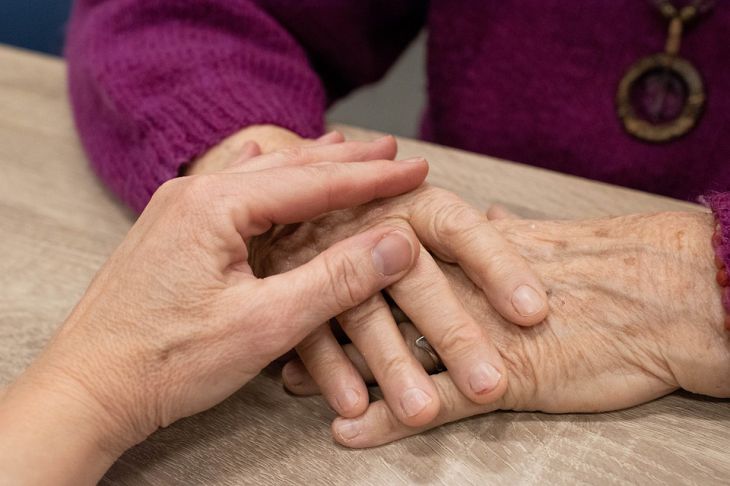Peculiarities of the skin of the elderly: what are the risks, what does the expert say
As people age, their skin changes significantly. It becomes drier, thinner, wrinkled, and unevenly pigmented, especially in exposed areas.
Metabolic processes in the skin slow down, which leads to disruption of thermoregulation and atrophy of the sebaceous and sweat glands.
The immune system of older people weakens, which reduces its ability to recognize viruses and bacteria and fight cancer cells.
Oncologist of the 1st category of the HappyDerm medical center Lyudmila Artyushkevich notes that age-related changes can cause the development of dermatoses (skin diseases) and skin tumors.
In addition, older people often suffer from several chronic diseases, to which skin diseases may be added.

A dermatologist is often the specialist patients turn to with complaints about their skin condition. Their job is to identify possible other (non-skin) diseases.
Skin diseases
In older people, skin diseases (dermatoses) are more common than in younger people. These may include xerosis (dry skin), fungal diseases of the skin and nails, bacterial and parasitic infections, trophic changes and ulcers, drug rashes, and vesicular dermatoses.
One of the most common complaints is itching, which is often caused by dry, thinning skin and is aggravated by dry air, frequent washing, or the use of irritating products on the skin.
Itching can also be associated with diseases of internal organs, parasitic infection, or taking a large number of medications.
Skin care for older people is very important. It is recommended to take a cool or warm shower for no more than 1-2 minutes with minimal use of soap.
Additionally, you should avoid prolonged sun exposure and use sunscreens with a high level of UV protection. It is also important to eat a diet rich in antioxidants and vitamins such as vitamin A, C and E, which will help maintain healthy skin.
If an elderly person experiences any changes in the skin or complains of itching or other discomfort, it is recommended to immediately consult a dermatologist for diagnosis and treatment.
This is especially important if you have other chronic conditions or are taking medications that may affect your skin. Early consultation with a specialist can help prevent serious complications.
Skin formation
Skin cancer is a disease that usually affects people in old age. More than half of cases of the disease are diagnosed in people over 65 years old.
However, older people also often have benign growths such as seborrheic keratosis, warts and papillomas.
Although they are not a serious threat, they can still cause discomfort.
There are also a number of potentially dangerous growths such as Bowen's disease, senile keratomas, cutaneous horn, keratoacanthomas, actinic keratosis and scars that may develop into cancer over time.
Basal cell carcinoma, squamous cell carcinoma and melanoma are the most common types of malignant skin tumors. Melanoma is considered the most dangerous.
Skin tumors can be easily detected during examination. Skin cancer treatment can be effective at any age if the disease is diagnosed in time. The earlier skin cancer is detected, the easier it is to treat.
Elderly people suffering from chronic diseases should undergo regular medical examinations and be under the supervision of doctors. It is important to see a doctor even with "minor" symptoms in order to receive timely help.
